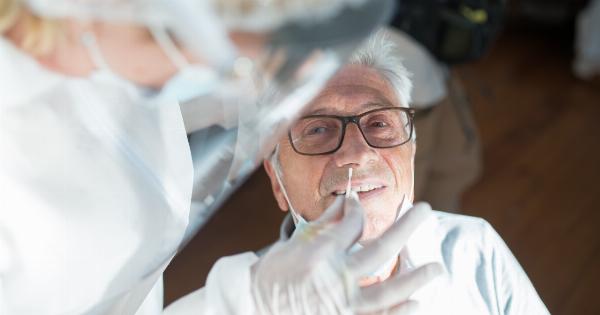Sinusitis is a common condition that causes inflammation and swelling of the sinus cavities, which are hollow spaces in the bones around the nose. This condition can be quite bothersome and can significantly affect a person’s quality of life.
In this article, we will discuss the symptoms, causes, and possible cures for sinusitis.
Symptoms of Sinusitis
The symptoms of sinusitis can vary from person to person, but some of the most common symptoms include:.
- Nasal congestion and stuffiness
- Facial pain or pressure
- Headache
- Cough
- Postnasal drip
- Bad breath
- Fatigue
- Fever
- Decreased sense of smell
These symptoms can be present for a few days or can last for several weeks or even months. Depending on the severity of the condition, sinusitis can be classified as acute, subacute, chronic, or recurrent.
Causes of Sinusitis
There are several factors that can contribute to the development of sinusitis, including:.
- Allergies: Allergic reactions to pollen, dust mites, pet dander, and other allergens can trigger inflammation in the sinuses.
- Infections: Viral, bacterial, or fungal infections can cause inflammation and lead to sinusitis.
- Nasal polyps: These are noncancerous growths in the nasal cavity that can obstruct the sinuses and promote the development of sinusitis.
- Deviated septum: A deviated septum refers to the displacement of the bone and cartilage that divides the nasal cavity, which can obstruct the sinuses and lead to sinusitis.
- Weak immune system: People with weakened immune systems are more susceptible to infections that can cause sinusitis.
- Environmental factors: Exposure to pollutants, smoke, and certain chemicals can irritate the sinuses and contribute to the development of sinusitis.
Treatment and Cures for Sinusitis
The treatment and cure options for sinusitis depend on the underlying cause and severity of the condition. Some common treatment approaches include:.
1. Nasal Irrigation
Nasal irrigation involves flushing the sinuses with a saline solution to remove excess mucus and allergens. This can be done using a neti pot or a nasal spray.
2. Over-the-Counter Medications
Over-the-counter medications such as decongestants and pain relievers can help alleviate the symptoms of sinusitis. However, these medications only provide temporary relief and do not cure the underlying cause.
3. Prescription Medications
In cases where sinusitis is caused by a bacterial infection, the doctor may prescribe antibiotics. Antifungal medications may be prescribed for fungal sinusitis. Nasal corticosteroids can also be prescribed to reduce inflammation in the sinuses.
4. Immunotherapy
Immunotherapy, also known as allergy shots, can be helpful for individuals with sinusitis caused by allergies. These shots gradually expose the person to increasing amounts of the allergen to build up tolerance and reduce symptoms.
5. Endoscopic Sinus Surgery
If other treatment options fail to provide relief, the doctor may recommend endoscopic sinus surgery. This minimally invasive procedure aims to remove nasal polyps, correct a deviated septum, or enlarge the sinus openings to promote better drainage.
Preventing Sinusitis
While it may not always be possible to prevent sinusitis, there are certain measures that can reduce the risk of developing this condition. Some preventive actions include:.
- Practicing good hand hygiene to avoid infections
- Using a humidifier to keep the air moist
- Avoiding exposure to known allergens
- Quitting smoking and avoiding secondhand smoke
- Managing allergies and promptly treating nasal congestion
Conclusion
Sinusitis is a common condition that can cause significant discomfort and affect daily life. By understanding the symptoms, causes, and possible cures for sinusitis, individuals can seek appropriate medical attention and find relief from their symptoms.
It is important to consult a healthcare professional for an accurate diagnosis and personalized treatment plan for sinusitis.






























